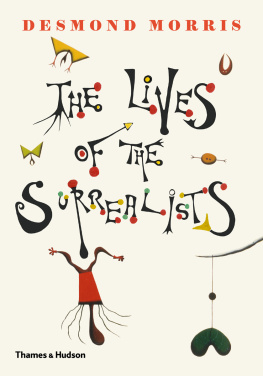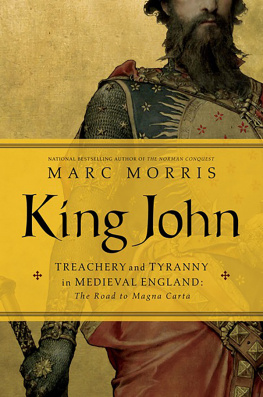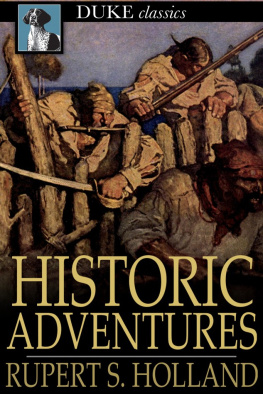THE ANCIENT SCYTHIANS.
Far over the eastern half of Europe extends a vast and mighty plain, spreading thousands of miles to the north and south, to the east and west, in the north a land of forests, in the south and east a region of treeless levels. Here stretches the Black Land, whose deep dark soil is fit for endless harvests; here are the arable steppes, a vast fertile prairie land, and here again the barren steppes, fit only for wandering herds and the tents of nomad shepherds. Across this great plain, in all directions, flow myriads of meandering streams, many of them swelling into noble rivers, whose waters find their outlet in great seas. Over it blow the biting winds of the Arctic zone, chaining its waters in fetters of ice for half the year. On it in summer shine warm suns, in whose enlivening rays life flows full again.
Such is the land with which we have to deal, Russia, the seeding-place of nations, the home of restless tribes. Here the vast level of Northern Asia spreads like a sea over half of Europe, following the lowlands between the Urals and the Caspian Sea. Over these broad plains the fierce horsemen of the East long found an easy pathway to the rich and doomed cities of the West. Russia was playing its part in the grand drama of the nations in far-off days when such a land was hardly known to exist.
Have any of my readers ever from a hill-top looked out over a broad, low-lying meadow-land filled with morning mist, a dense white shroud under which everything lay hidden, all life and movement lost to view? In such a scene, as the mist thins under the rays of the rising sun, vague forms at first dimly appear, magnified and monstrous in their outlines, the shadows of a buried wonderland. Then, as the mist slowly lifts, like a great white curtain, living and moving objects appear below, still of strange outlines and unnatural dimensions. Finally, as if by the sweep of an enchanter's wand, the mists vanish, the land lies clear under the solar rays, and we perceive that these seeming monsters and giants are but the familiar forms which we know so well, those of houses and trees, men and their herds, actively stirring beneath us, clearly revealed as the things of every day.
It is thus that the land of Russia appears to us when the mists of prehistoric time first begin to lift. Half-formed figures appear, rising, vanishing, showing large through the vapor; stirring, interwoven, endlessly coming and going; a phantasmagoria which it is impossible more than half to understand. At that early date the great Russian plain seems to have been the home of unnumbered tribes of varied race and origin, made up of men doubtless full of hopes and aspirations like ourselves, yet whose story we fail to read on the blurred page of history, and concerning whom we must rest content with knowing a few of the names.
Yet progressive civilizations had long existed in the countries to the south, Egypt and Assyria, Greece and Persia. History was actively being made there, but it had not penetrated the mist-laden North. The Greeks founded colonies on the northern shores of the Black Sea, but they troubled themselves little about the seething tribes with whom they came there into contact. The land they called Scythia, and its people Scythians, but the latter were scarcely known until about 500 B. C. , when Darius, the great Persian king, crossed the Danube and invaded their country. He found life there in abundance, and more warlike activity than he relished, for the fierce nomads drove him and his army in terror from their soil, and only fortune and a bridge of boats saved them from perishing.
It was this event that first gave the people of old Russia a place on the page of history. Herodotus, the charming old historian and story-teller, wrote down for us all he could learn about them, though what he says has probably as much fancy in it as fact.
We are told that these broad levels were formerly inhabited by a people called the Cimmerians, who were driven out by the Scythians and went it is hard to tell whither. A shadow of their name survives in the Crimea, and some believe that they were the ancestors of the Cymri, the Celts of the West.
The Scythians, who thus came into history like a cloud of war, made the god of war their chief deity. The temples which they built to this deity were of the simplest, being great heaps of fagots, which were added to every year as they rotted away under the rains. Into the top of the heap was thrust an ancient iron sword as the emblem of the god. To this grim symbol more victims were sacrificed than to all the other deities; not only cattle and horses, but prisoners taken in battle, of whom one out of every hundred died to honor the god, their blood being caught in vessels and poured on the sword.
A people with a worship like this must have been savage in grain. To prove their prowess in war they cut off the heads of the slain and carried them to the king. Like the Indians of the West, they scalped their enemies. These scalps, softened by treatment, they used as napkins at their meals, and even sewed them together to make cloaks. Here was a refinement in barbarity undreamed of by the Indians.
These were not their only savage customs. They drank the blood of the first enemy killed by them in battle, and at their high feasts used drinking-cups made from the skulls of their foes. When a chief died cruelty was given free vent. The slaves and horses of the dead chief were slain at his grave, and placed upright like a circle of horsemen around the royal tomb, being impaled on sharp timbers to keep them in an upright position.
Tribes with habits like these have no history. There is nothing in their careers worth the telling, and no one to tell it if there were. Their origin, manners, and customs may be of interest, but not their intertribal quarrels.
Herodotus tells us of others besides the Scythians. There were the Melanchlainai, who dressed only in black; the Neuri, who once a year changed into wolves; the Agathyrei, who took pleasure in trinkets of gold; the Sauromati, children of the Amazons, or women warriors; the Argippei, bald-headed and snub-nosed from their birth; the Issedones, who feasted on the dead bodies of their parents; the Arimaspians, a one-eyed race; the Gryphons, guardians of great hoards of gold; the Hyperboreans, in whose land white feathers (snow-flakes? ) fell all the year round from the skies.
Such is the mixture of fact and fable which Herodotus learned from the traders and travellers of Greece. We know nothing of these tribes but the names. Their ancestors may have dwelt for thousands of years on the Russian plains; their descendants may still make up part of the great Russian people and retain some of their old-time habits and customs; but of their doings history takes no account.
The Scythians, who occupied the south of Russia, came into contact with the Greek trading colonies north of the Black Sea, and gained from them some little veneer of civilization. They aided the Greeks in their commerce, took part in their caravans to the north and east, and spent some portion of the profits of their peaceful labor in objects of art made for them by Greek artists.
This we know, for some of these objects still exist. Jewels owned by the ancient Scythians may be seen to-day in Russian museums. Chief in importance among these relics are two vases of wonderful interest kept in the museum of the Hermitage, at St. Petersburg. These are the silver vase of Nicopol and the golden vase of Kertch, both probably as old as the days of Herodotus. These vases speak with history. On the silver vase we may see the faces and forms of the ancient Scythians, men with long hair and beards and large features. They resemble in dress and aspect the people who now dwell in the same country, and they are shown in the act of breaking in and bridling their horses, just as their descendants do to-day. Progress has had no place on these broad plains. There life stands still.

















